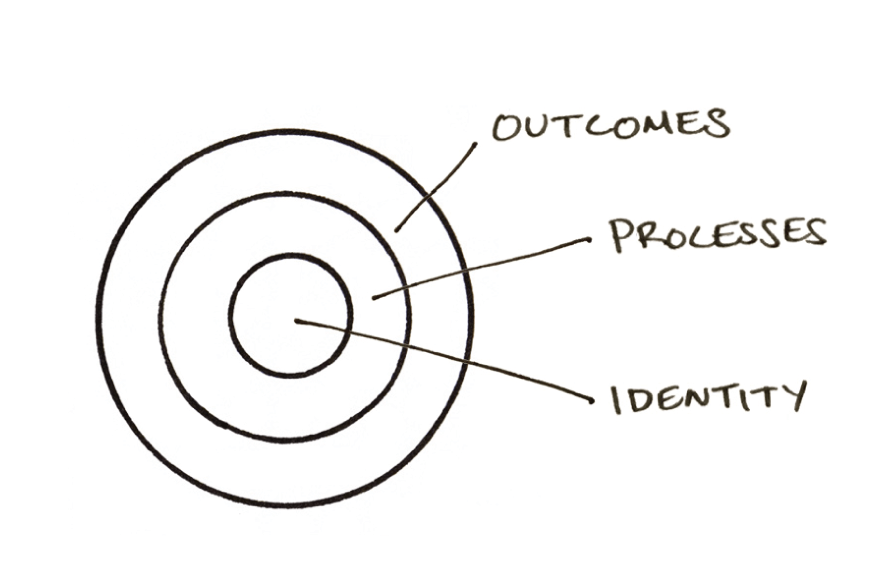To choose or not to choose that is the question. I was always told there were 3 options to choose from: Yes, No, and You choose not to decide.
A story from my father. He always told me of the options he was asked about at a job he worked. His boss asked, "What answers are there always in life?"
As my father always said (while quoting Rush), "Yes, No, and You choose not to decide."
Freewill
"If you choose not to decide you still have made a choice." - Rush
Philosophy fundamentally always comes down to our choices and our character. If we choose to not choose, then our outcome is already predetermined. Are character is predetermined.
Making decisions is hard, but not choosing is even harder. When you make a choice, at the very least you know you are responsible for your own destiny. Autonomy is essential for true independence and happiness.
For several years I watched a few hours of news content a day. I felt almost trapped by the fear-mongering of politics and by the absurdity I was already dealing with in high school at the time. After a while, I learned how miserable I was, and I cut it out instantly. Cut the watch hours. Paid less attention to the news in general. Instead, I have been focusing on my own life, and what I can control. And to tell you the truth, the amount of burden I have lifted off my shoulders is insurmountable.
If you never choose, then as I said before you are responsible for nothing in your life. This is where I think much of Gen Z's depressive state comes from. We are so focused on big cultural or political ideas outside of our control, that we become highly anxious and worried about things that frankly shouldn't concern us.
I'm not saying don't pay attention to the big issues, just don't invest too much attention stock in them. Put more stock in your own living, what you can control.
Analytical Sacrifice
The opportunity cost of not choosing from an abundance of options. This is what I call analytical sacrifice, more commonly known as analysis paralysis. Having so many decisions that you end up either choosing poorly or not choosing at all. Not a fun cycle. Typically after a certain point (the high point/sweet spot on the graph), additional choices only add to discomfort.
It looks something like this.

The easiest solution is reducing the amount of options. This can be done by a sort of quasi-minimalism. Cut the amount of apps you use, restaurants you go to, people you talk to, etc.
In a world of more this, more that, having more decisions does not help us. Funny enough the opportunity cost of indecision seems to ultimately lead to worse outcomes than making a bad choice.
A bad choice gives you a reference point to work from. A lesson to be learned. Do nothing however teaches you nothing and gets you nowhere.
The opportunity cost of indecision is higher than that of a negative consequence of choosing wrongly.
Excessive FOMO & Overanalyzing
Oh no, the horror! The fear I'm missing out! On what exactly? We have been shown a mirage of life. Simply a reflection of what we THINK life ought to be like. There is no common path other than treading exactly that which someone has taken before. This requires you to never think for yourself and never veer off the path of the person who came before you.
Impossible.
No two people are exact duplicates.
You can get close, but never exact. (This is why you see very similar personalities throughout)
This lack of personality development and curiosity is directly correlated with analytical sacrifice. Someone may think too much about what to try and how to do it perfectly, and then nothing ends up happening. If you never try anything new, you'll never grow.
This constant cycle is perpetuated by online culture (which we will discuss in a bit), but ultimately it is rooted in our psychology. We are wired for more novelty, something new, something different. Which is not inherently bad, but it is exploited by many to keep us hooked for as long as possible on their program, apps, etc.
Being self-aware of these tactics is enough to be able to not be taken advantage of by them. It seems that the best course of action is a happy medium between being still enough to focus and being able to pick one decision and stick with it.
Chronic Overthinking
If you are online enough then perhaps you have come across the term chronically online. It's no bueno.
Chronic Online is defined as "a phrase referring to someone closely engaged with Internet culture.[1] People said to be extremely online often believe that online posts are very important.[4][5] Events and phenomena can themselves be extremely online;[4] while often used as a descriptive term, the phenomenon of extreme online usage has been described as "both a reformation of the delivery of ideas – shared through words and videos and memes and GIFs and copypasta – and the ideas themselves"." (Wikipedia)
Essentially, you are online so much you become versed in the new language and culture of the internet bros. This abundance of information influences day-to-day life and culture where expectations are where they shouldn't be. Such as expecting novelty every few minutes.
This lapse in attention leads to a decision-making deficit. The internet information overabundance then extends to a chronic overthinking problem. The attention deficit then allows your mind to race from thought to thought without being able to slow down, be still, and focus on one thing at a time.
The thought drifts to the clouds and the thought never becomes a step.
Instead of looking into the endless content sludge, perhaps we are better suited to take a break from this constant flow of info drowning us in an unnecessary amount of information.
A Thought Vs. A Step
A Thought For The Future Is Only A Thought. A step towards the future is where life lies.
Sitting and dreaming while is nice, it is not the same as living. When you start doing the thing you dreamed of, you might realize maybe it wasn't what you wanted at all. The only way to truly know if it is for you or not is if you take a step forward.






